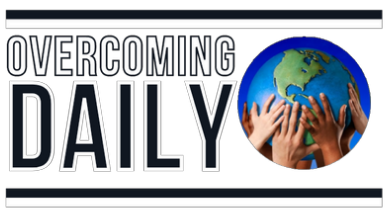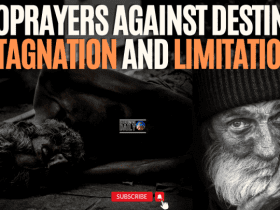
The Transformative Power of Honesty in a Deceptive World
The Undervalued Virtue of Honesty
In an era where deceit and corruption appear rampant, the significance of honesty can be easily overshadowed. However, the enduring strength of truth shouldn't be underestimated. Lies may offer a temporary advantage, but they lack the foundation to withstand scrutiny. Remember, even a well-crafted falsehood cannot replace the truth. Additionally, embracing honesty fosters a culture of transparency and trust, virtues that are essential for the well-being of any society. In upholding honesty, we not only affirm our personal integrity but also contribute to a more ethical and just world.
The Peril of Shortcuts: A False Sense of Security
Contrary to popular belief, cutting corners and relying on deception only provide an illusion of success. Beneath the façade, the structure is frail. It's akin to building a mansion on a weak foundation—it's bound to crumble sooner or later. Scripture warns against the folly of dishonest gains and the ephemeral nature of deceit, as seen in Proverbs 10:9: "Whoever walks in integrity walks securely, but whoever takes crooked paths will be found out."
In likening life's shortcuts to a shaky foundation, the Bible reminds us of the parable of the wise and foolish builders (Matthew 7:24-27). The wise man builds his house on rock, a strong foundation that withstands storms and trials. The foolish man, however, constructs his home on sand, leaving it vulnerable to destruction. The same principle applies to our lives: when we rely on quick fixes and deceit, we set ourselves up for inevitable failure.
Hence, the apparent 'success' gained from dishonesty is fleeting. Like the foolish builder, we leave ourselves exposed to life's storms, devoid of the security that a solid foundation provides. So, in navigating the complexities of life, let's strive to be the wise builder, securing our actions and decisions on the bedrock of honesty and integrity.
The Inevitable Exposure of Deceit
Deception may seem invincible, but the inevitable reality is that it will be exposed. As the saying goes, "what's done in the dark will come to light." This aligns perfectly with Matthew 10:26, which declares that there's nothing hidden that won't be revealed. Hence, no matter how long a lie persists, it will never transform into the truth.
This scriptural warning serves as a timeless moral compass, guiding us away from the tempting shortcuts of deceit and falsehood. While lies may offer momentary relief or advantage, they often result in long-term consequences that far outweigh any perceived benefits. The cost of deception is high, not just in terms of social consequences, but also in how it erodes one's character and peace of mind.
The persistent myth that dishonesty can be sustained relies on the false belief that one can control all variables to prevent exposure. However, the more one engages in deception, the more complicated the web of lies becomes. And as any seasoned detective will tell you, the complexity of a lie increases the odds of its unraveling.
It's a grave mistake to underestimate the power of truth, which has a way of surfacing despite all attempts to suppress it. The unwavering message from the Scriptures encourages us to live transparent lives, understanding that integrity is not just a virtue but a safeguard. So, instead of investing in a house of cards that's doomed to collapse, why not build a fortress of integrity that can withstand any storm? The choice is ours to make, and the time to make it is now.
Navigating the Cost of Integrity
Being truthful often comes with a price—rejection, ridicule, or even persecution. Yet these are merely temporal consequences. When you stick to your principles, you experience a divine form of resilience and courage that can only come from God.
This mirrors the teachings of the Bible, specifically in 1 Peter 3:16, which says, "Having a good conscience, so that, when you are slandered, those who revile your good behavior in Christ may be put to shame." This scripture underscores the essence of maintaining integrity, even when it's unpopular or uncomfortable to do so. God is a God of justice and righteousness, and He is the ultimate arbiter of truth. When we align our lives with His principles, we invite His protection, favor, and guidance into our lives.
Paul's life is a striking example. He faced severe persecution and hardship for upholding the truth of the Gospel, yet he declared in 2 Corinthians 12:10, "For the sake of Christ, then, I am content with weaknesses, insults, hardships, persecutions, and calamities. For when I am weak, then I am strong." Paul's courage and resilience weren't born from his own strength but were made perfect in his weakness by God's grace. His life is a testament to the power of truth and integrity.
In the face of worldly pressure, the Bible provides a clear framework for how to navigate the complexities of life while maintaining integrity. Proverbs 10:9 says, "Whoever walks in integrity walks securely, but he who makes his ways crooked will be found out." This scripture assures us that God honors integrity and truthfulness and offers security to those who adhere to these virtues.
It may seem challenging to bear the cost of integrity in a world that often rewards shortcuts and deceit. However, this cost is nothing compared to the eternal reward of living a life pleasing to God. Jesus Himself put it succinctly in Matthew 16:26, "For what will it profit a man if he gains the whole world and forfeits his soul? Or what shall a man give in return for his soul?"
Ultimately, the choice to be honest and maintain integrity is a testament to one's faith and obedience to God. It's an opportunity to live out our faith in a tangible way that honors God and influences the world around us for the better. So, as you navigate the sometimes challenging path of integrity, take comfort in knowing that you're in good company—walking in the footsteps of the Author of Truth Himself.
Christianity's Role in Upholding Truth
Astoundingly, some people claim they'd rather engage in business with non-believers than with Christians. This is a glaring indictment and calls for introspection among Christian communities. Christians are not merely called to preach the Gospel but also to be living embodiments of godly virtues. Therefore, it's imperative that Christians serve as trustworthy counselors and advisors. In the words of Matthew 5:16, "Let your light so shine before men, that they may see your good works, and glorify your Father which is in heaven." By actively upholding truth, Christians can effectively serve as Christ's ambassadors on Earth, drawing more people to the light of God’s love.
Distinguishing the Sheep from the Goats
The dilution of Christian virtues isn't merely an external issue; it’s internal as well. The presence of individuals with ulterior motives within Christian communities has led to a decline in the collective integrity of the faith. Yet, you can be the catalyst for change. By adhering to 1 Peter 2:12, and leading a life filled with good works, you can silence the naysayers and glorify God. This is not just about personal piety; it’s about communal transformation. When one stands firm, it emboldens others to do the same, creating a ripple effect that can turn the tide for an entire community.
Your Honesty, Your Legacy
In a world captivated by instant gratification, the enduring power of honesty often goes unnoticed. But make no mistake, your integrity defines your legacy. Whether you're a business owner, a parent, or a community leader, your honesty sets the stage for lasting impact. Proverbs 22:1 tells us that "a good name is rather to be chosen than great riches, and loving favor rather than silver and gold." Your honesty not only shapes how you're seen but also the legacy that you leave behind for future generations to admire and follow.
Conclusion: Honesty as an Act of Rebellion
In a society that often rewards deceit and manipulation, being honest is an act of rebellion. It's a declaration of your intent to live by higher principles. So take the charge today—be honest, be fearless, and be the change you wish to see. When you courageously stand for truth, you're essentially putting a dent in the culture of dishonesty that plagues society. James 5:16 exhorts us to "confess your faults one to another, and pray one for another, that ye may be healed." By creating a culture of openness and integrity, you pave the way for emotional and spiritual healing, both for yourself and for those around you.
Be the Beacon in the Murk of Deception
Your honesty won't just set you free; it'll liberate others too. In doing so, you'll be a beacon of hope in a world plagued by deceit. The Bible encourages us in Philippians 2:15 to "be blameless and innocent, children of God without blemish in the midst of a crooked and twisted generation, among whom you shine as lights in the world." By standing firm in your convictions, you serve as a guidepost for others who are searching for moral clarity in a murky world.
In conclusion, honesty isn't merely a personal virtue but a revolutionary act in a society that often disregards truth. Seize this opportunity to be a force of change, affirming your commitment to integrity and inspiring others to follow suit.
Further Reading










Leave a Reply